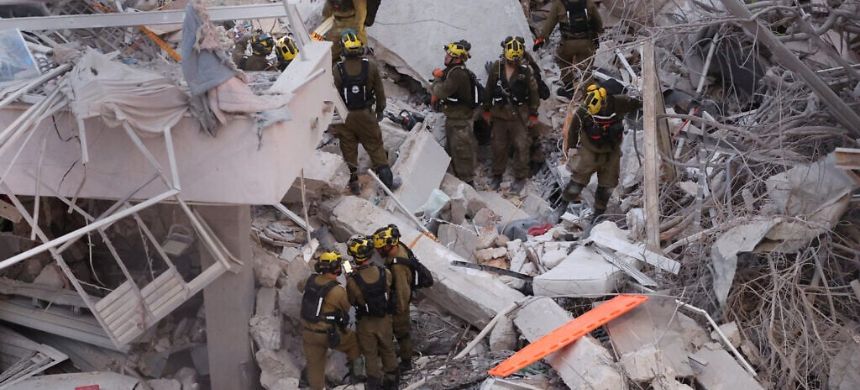Former President Donald Trump clarified that the United States was not involved in Israel’s recent airstrikes on Iran but issued a strong warning to Tehran, stating that any attack on the US would trigger an overwhelming military response. Meanwhile, the conflict intensified as Iran launched large-scale missile strikes on Israeli cities, including Tel Aviv and Haifa, killing at least ten people and injuring over 200. Explosions were reported across northern Israel, with Iran’s Revolutionary Guard Corps confirming responsibility for the latest barrage. Israel’s military said that Iranian missiles struck strategic areas, including Haifa, using advanced hypersonic and ballistic missiles.
In response, the Israeli military targeted a major underground missile facility in Khorramabad, western Iran, claiming to have destroyed storage tunnels and launch shafts containing surface-to-surface and cruise missiles. Iranian media reported Israeli strikes in Lorestan province, while Iranian air defenses were activated over Tehran and six other provinces to counter incoming threats.
Read more: Iran Launches Retaliatory Strikes on Israel After Deadly Attack
Iran’s military officials declared that their retaliatory operations would continue, warning Israel of further painful consequences. The situation on the ground remained tense as air raid sirens blared in Tel Aviv and Jerusalem, with Israeli defenses intercepting some of the incoming missiles.
Diplomatic efforts were also severely affected by the conflict. Oman announced the cancellation of US-Iran nuclear talks due to the escalating violence, with Washington confirming the development while still hoping Iran would return to the negotiating table. Iran dismissed the prospect of meaningful dialogue, accusing the US of backing Israeli aggression.
Read more: Jerusalem Faces Missile Threat Amid Overnight Iran-Israel Strikes
Tensions escalated further when Iran warned the US, UK, and France that any interference would result in attacks on their military bases and vessels across the region. Meanwhile, the US military reportedly assisted in intercepting some Iranian missiles aimed at Israel, although details remained limited.
The military confrontation led to significant casualties on both sides. Iranian media confirmed the deaths of two top commanders, Major General Mohammad Bagheri and General Gholamreza Mehrabi, in Israeli airstrikes. Reports also claimed that IRGC chief Hossein Salami was among those killed. Iran’s Supreme Leader Ayatollah Khamenei condemned Israel’s actions, promising a harsh and regretful response. Globally, Pakistan’s parliament passed a resolution denouncing the Israeli attack, expressing solidarity with Iran, while Saudi Arabia also condemned Israel’s strikes on Iranian targets. The United Nations and other international bodies were urged to intervene to prevent a full-scale regional war.
The economic impact of the conflict was immediate, with global oil prices surging by more than 10%, hitting their highest levels in nearly five months. Financial markets reacted strongly, as fears of disrupted oil supplies rattled investors worldwide. Israel remained on high alert, with airports shut down and military forces fully mobilized for a prolonged campaign. Both sides exchanged repeated missile and drone strikes, and while diplomatic efforts appeared stalled, regional tensions showed no sign of easing. Leaders on both sides indicated readiness for further escalation, making the coming days critical for the region’s stability.











